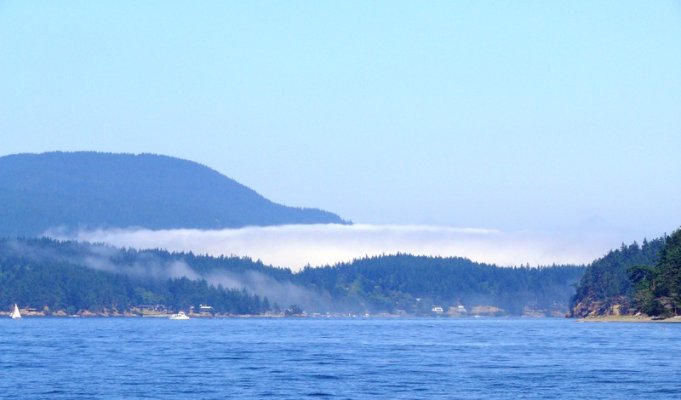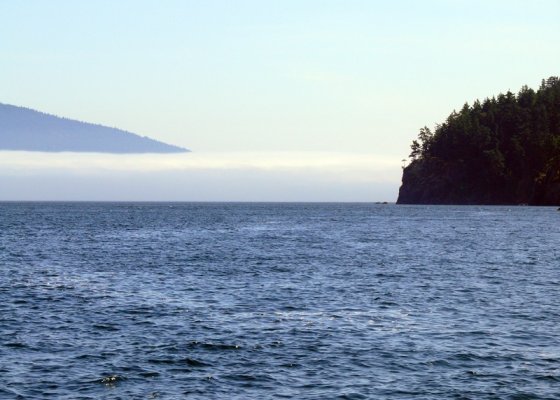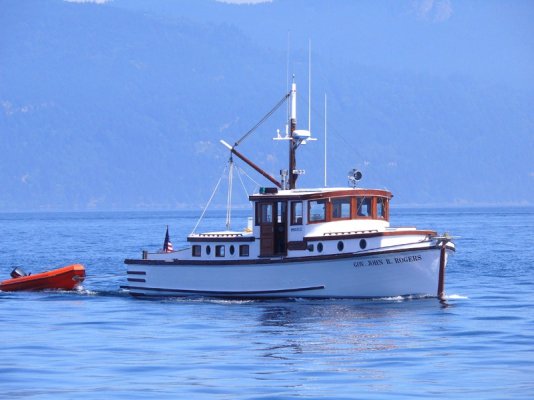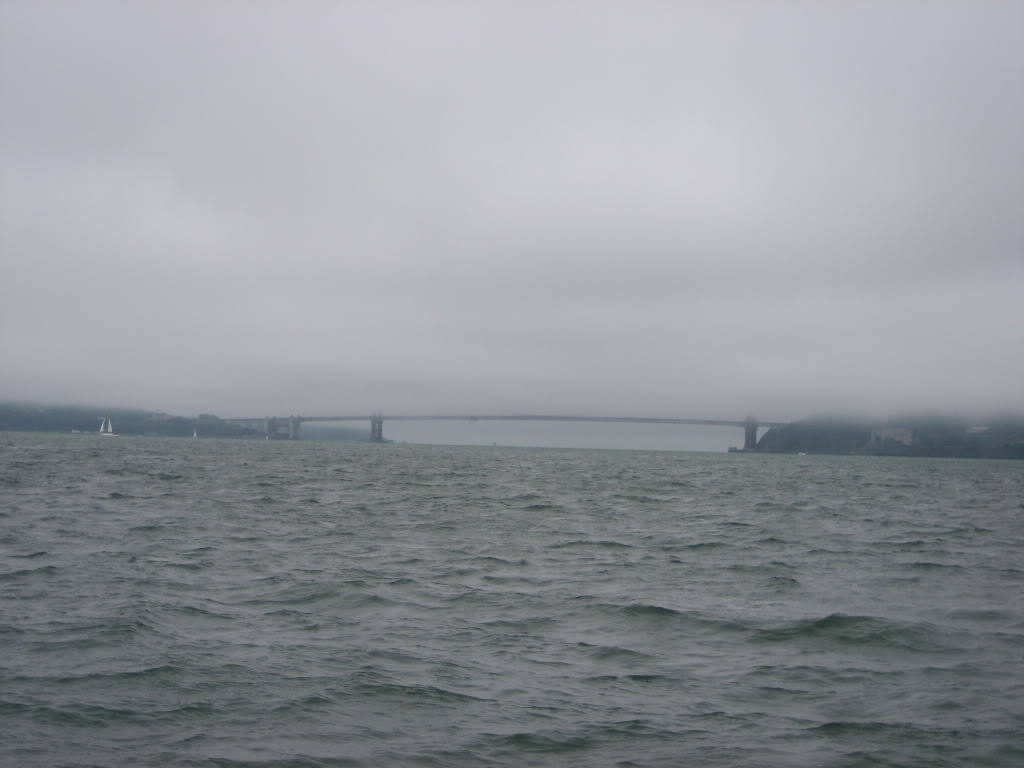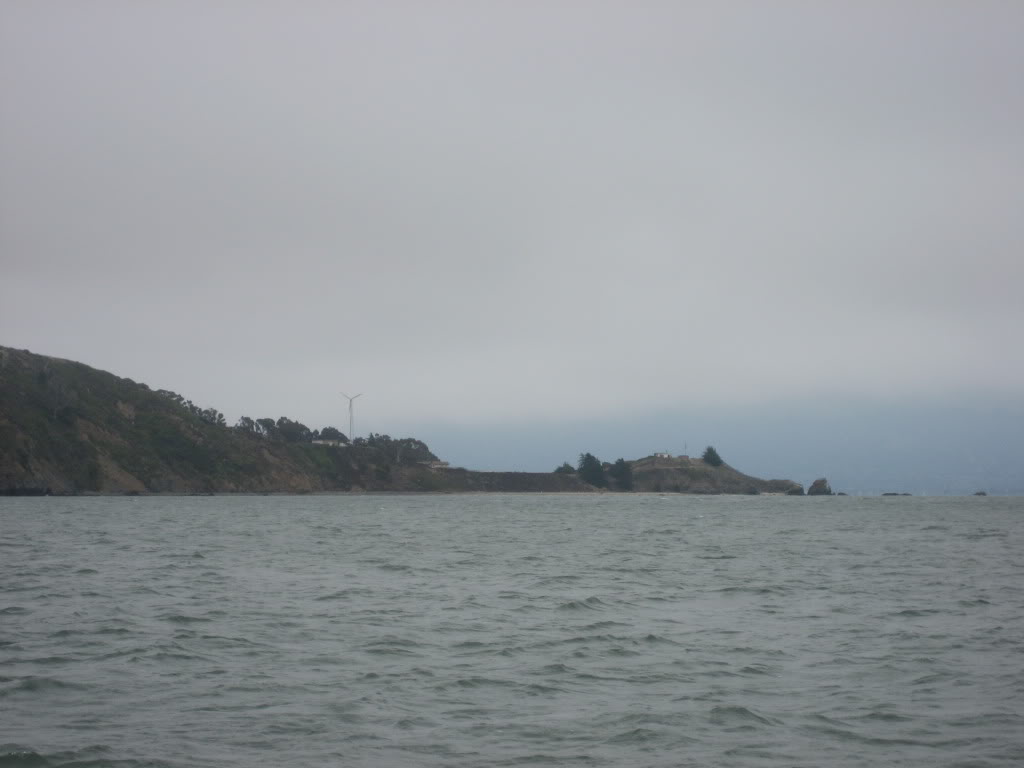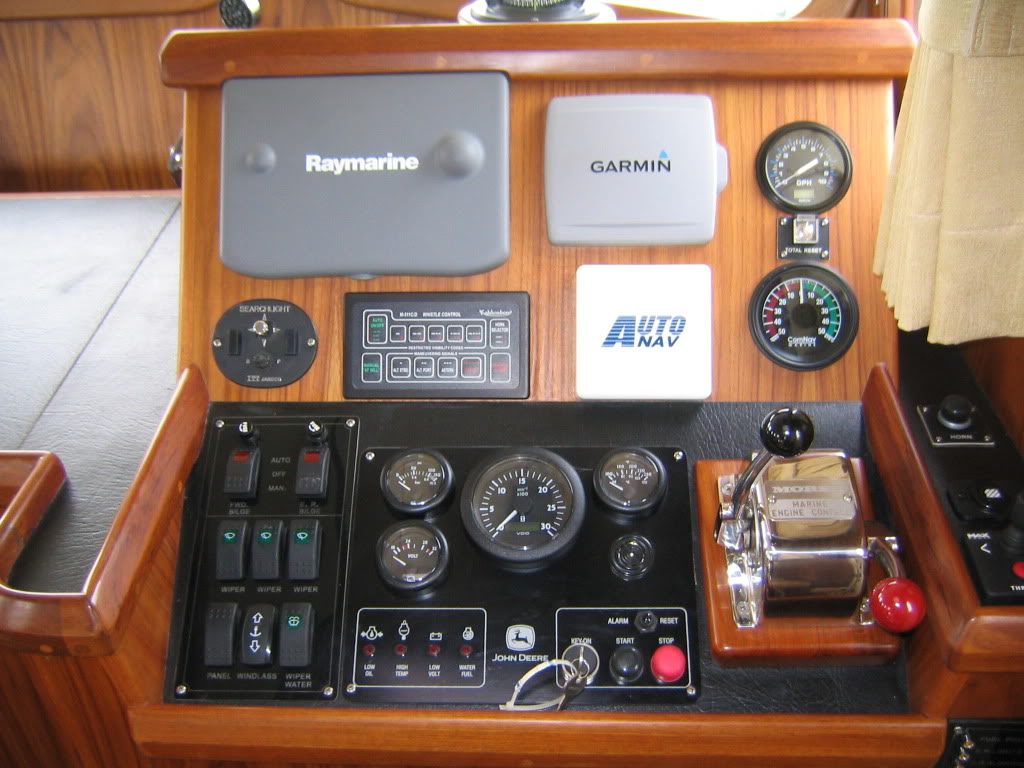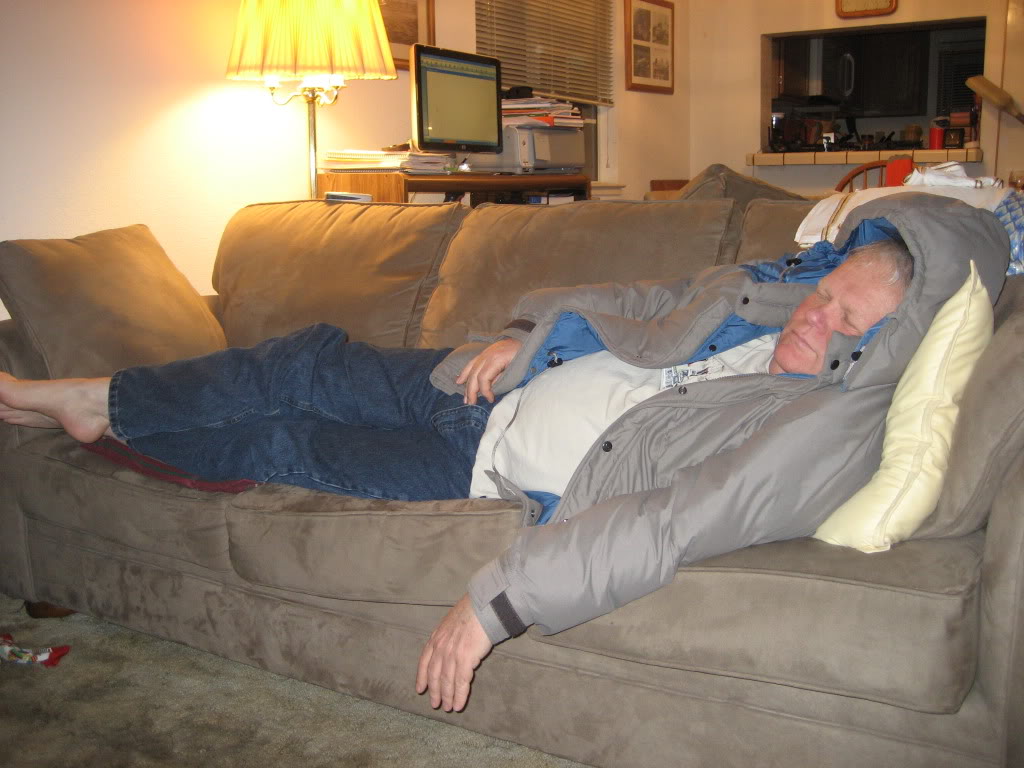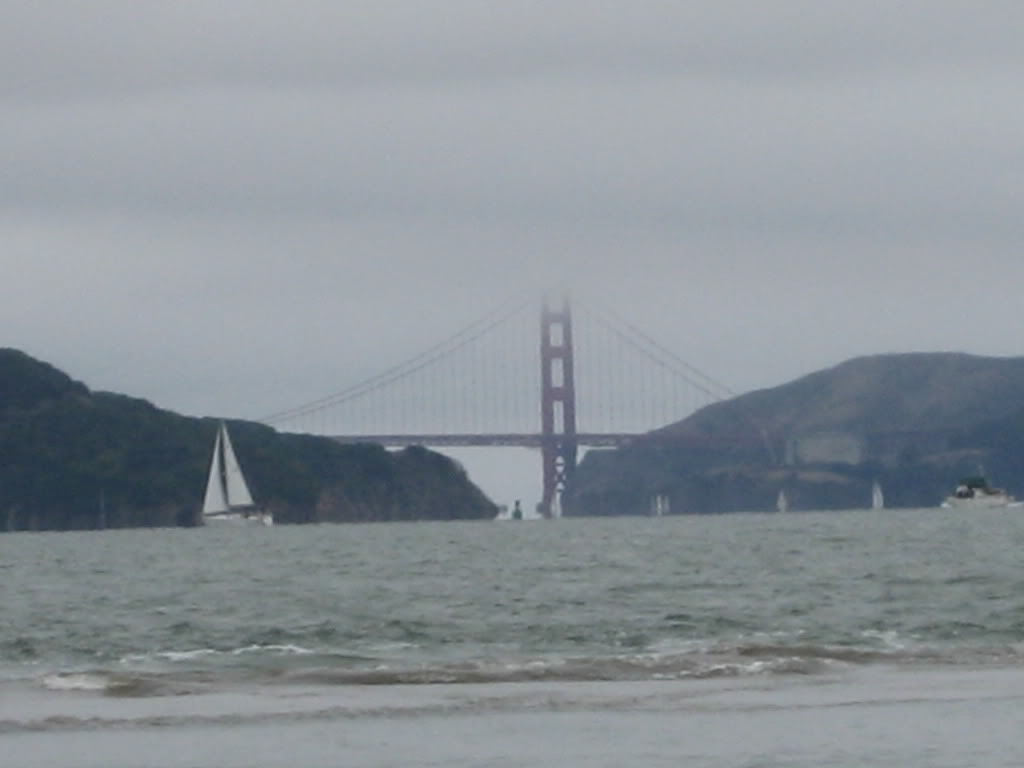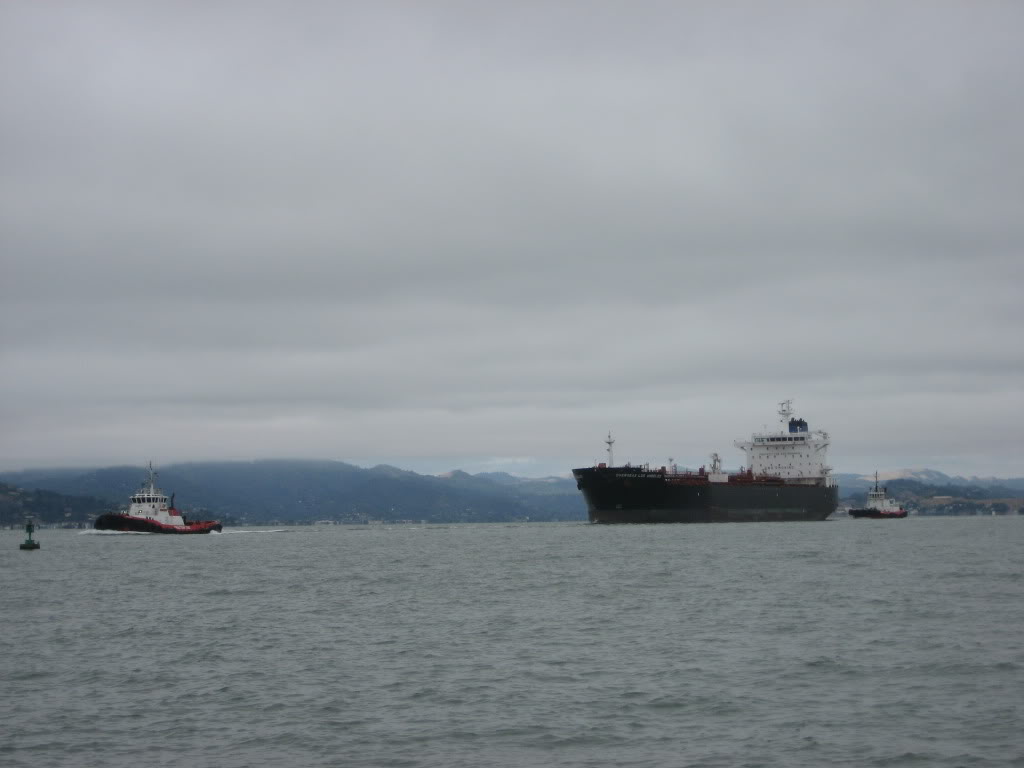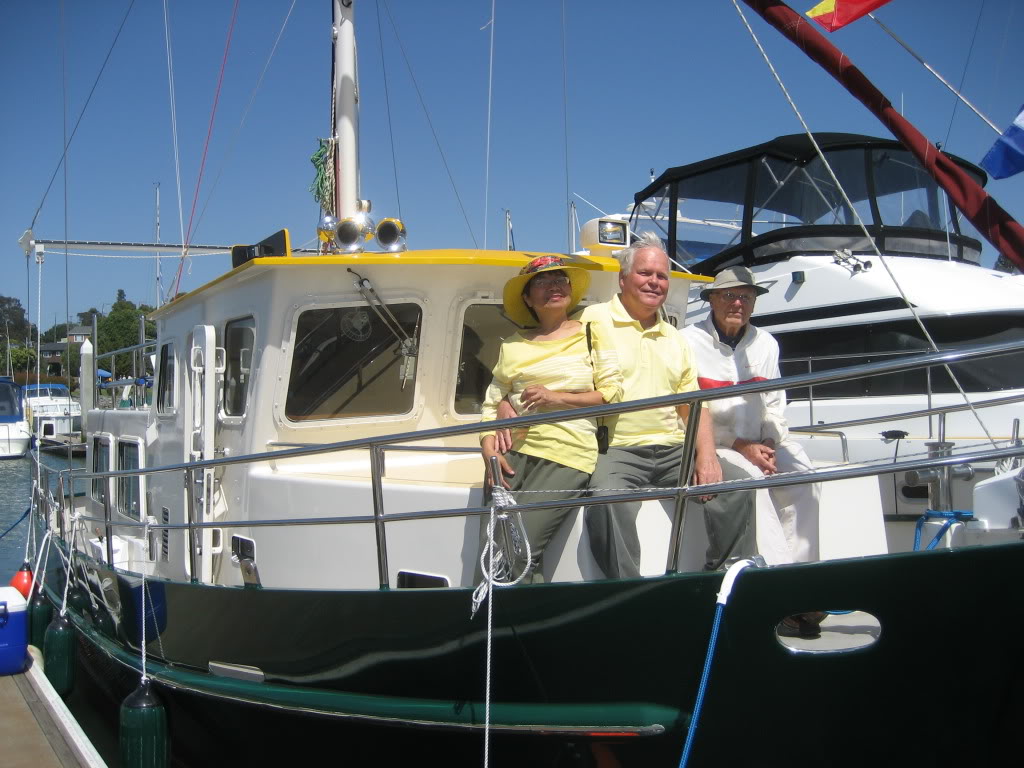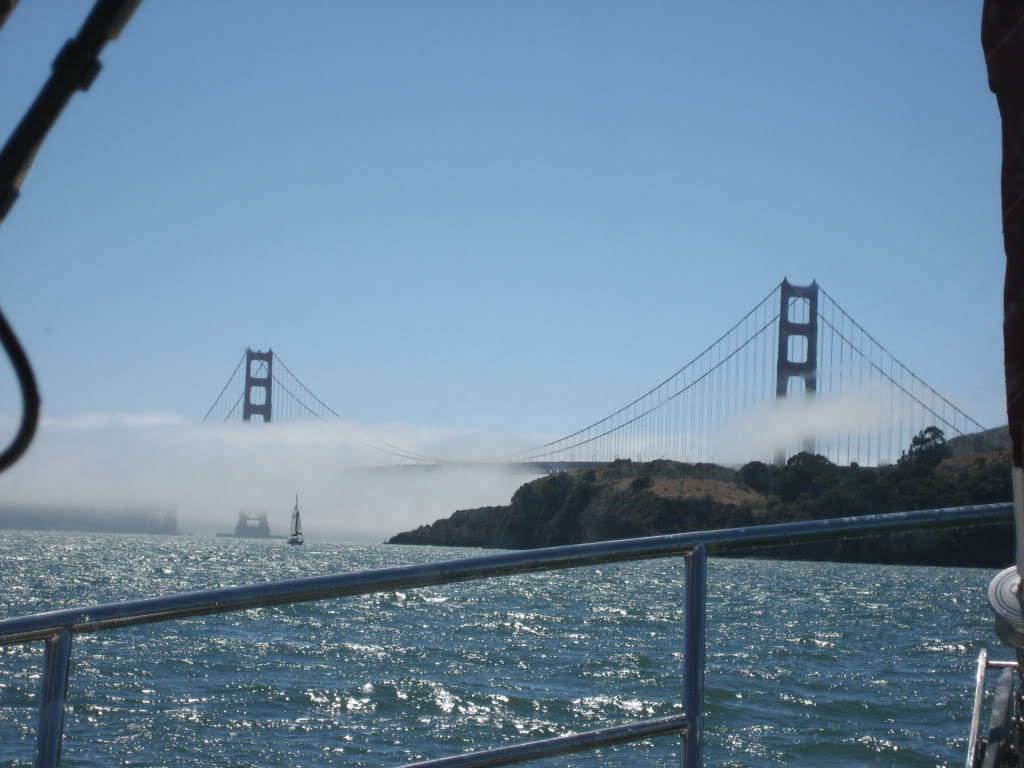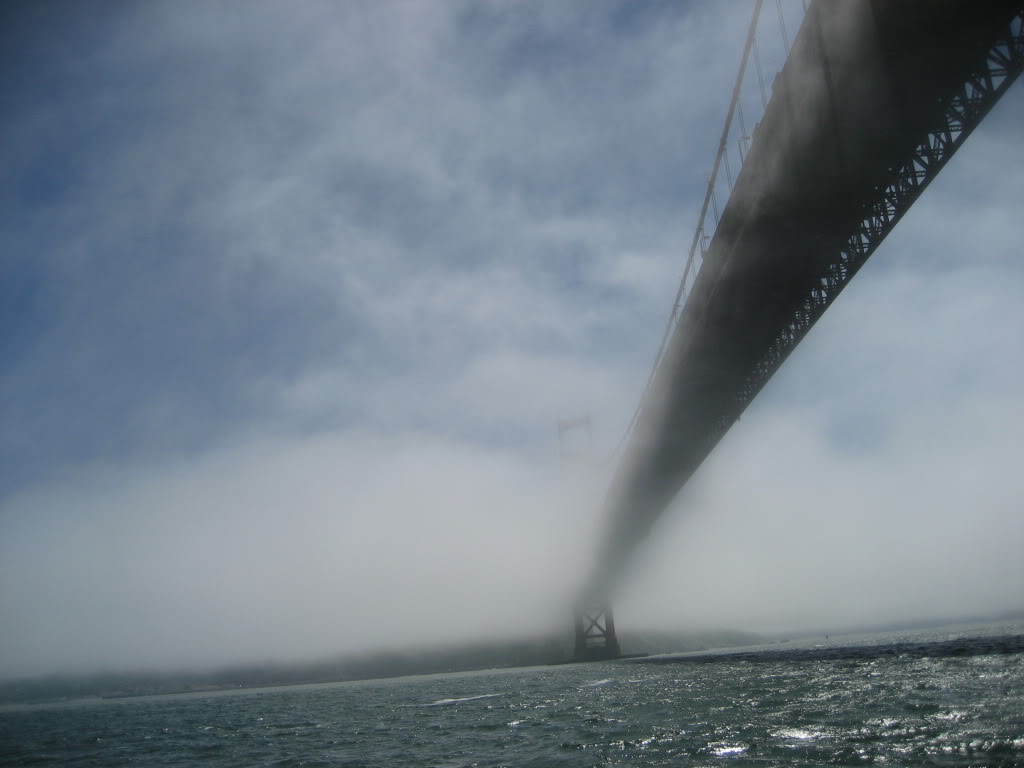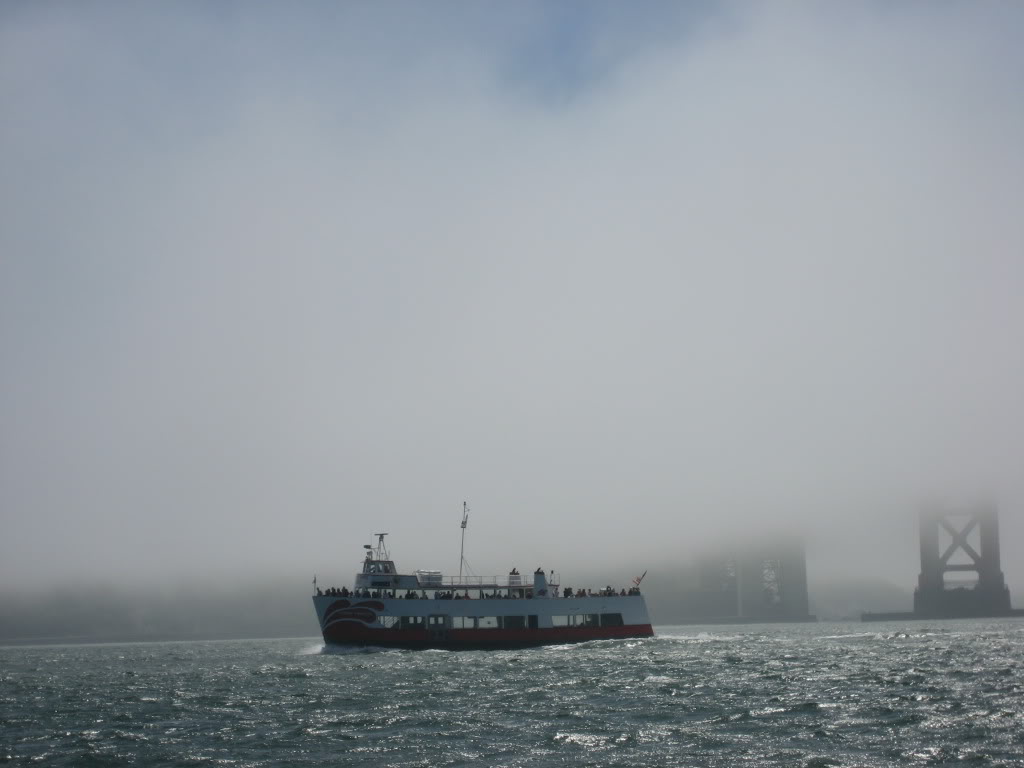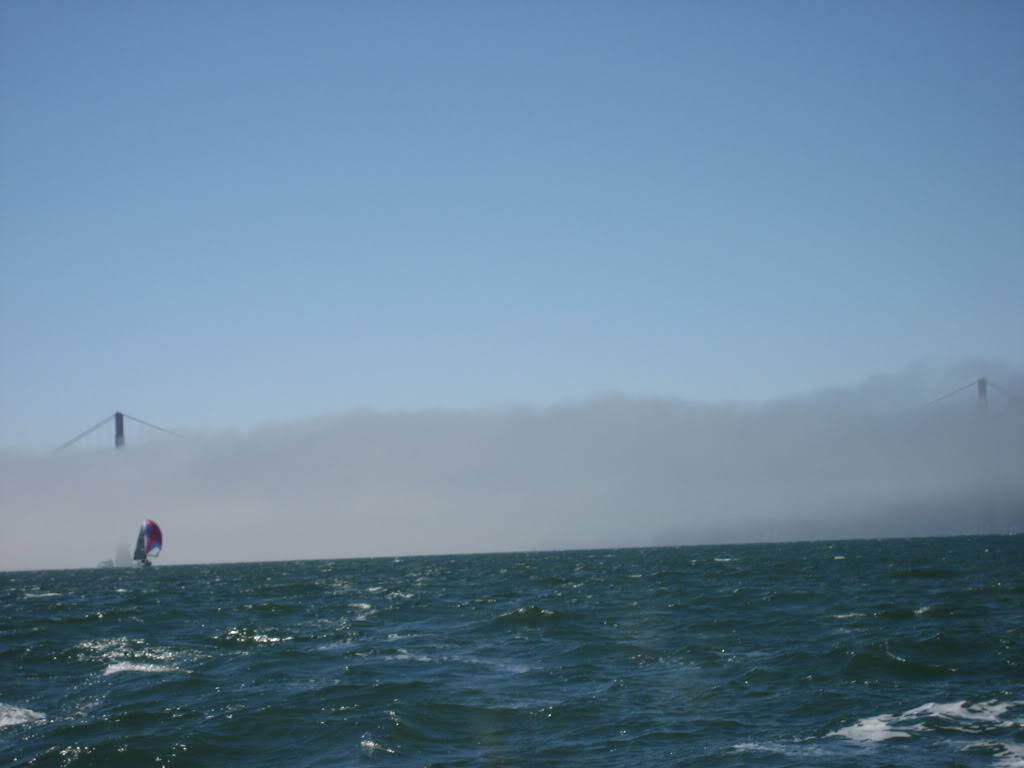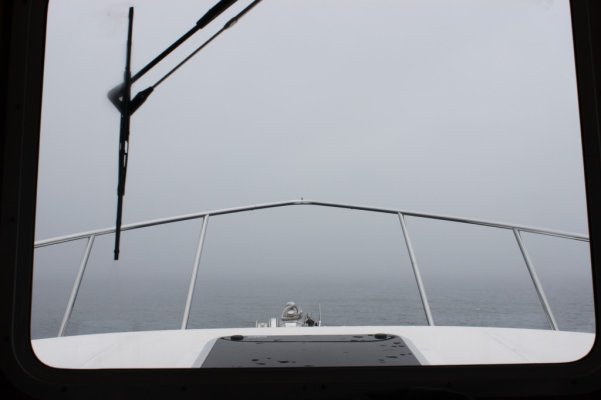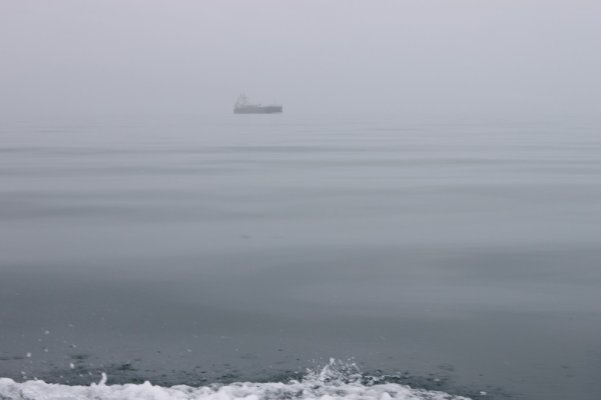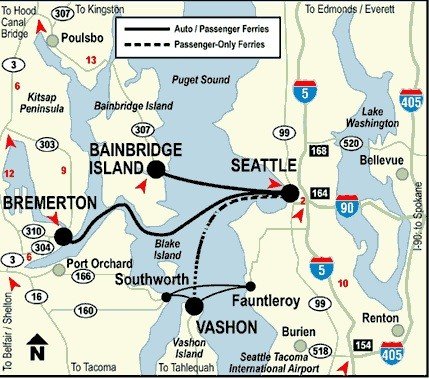A somewhat uncommon occurance for this time of year was the dense fog over northern Puget Sound this weekend.* This is quite common in September and October but not so much in the usually-hot July-August months.* Much of it was gone by mid-day but when we crossed Rosario Strait in the early afternoon on our way back to Bellingham on Sunday a heavy band of it still lay right up the middle of the strait.* "Heavy" in the sense that visiility was barely a boat length.
It was very pretty though.* The third shot is of the ex-Forestry boat "Governor John Roberts" which is based in Bellingham.* It sat somewhat neglected for many years but whoever owns it now seems to have put a lot of work into the boat, and even better, seems to use it regularly during the summer.
It was very pretty though.* The third shot is of the ex-Forestry boat "Governor John Roberts" which is based in Bellingham.* It sat somewhat neglected for many years but whoever owns it now seems to have put a lot of work into the boat, and even better, seems to use it regularly during the summer.

